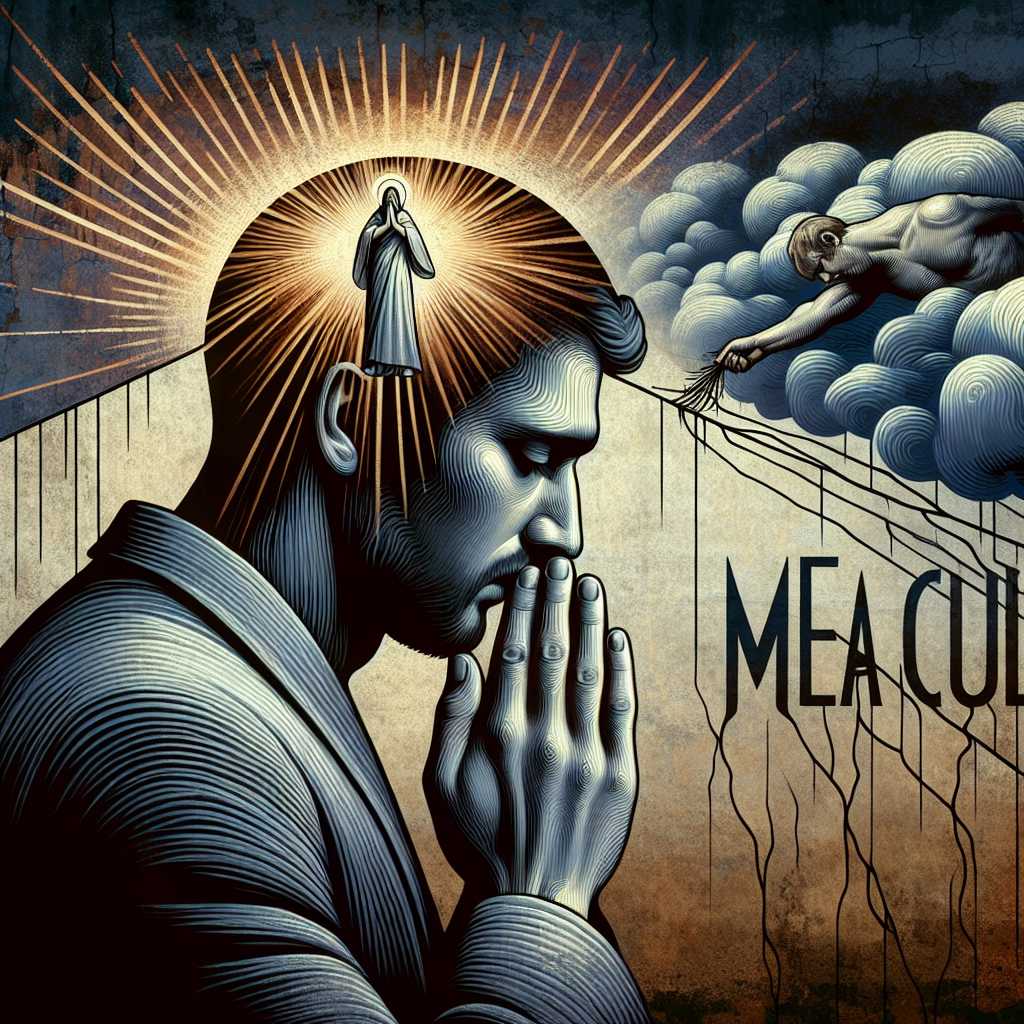Understanding the Concept and Usage of ‘Mea Culpa’ in Various Contexts
‘Mea culpa’ is a Latin phrase that translates directly to ‘my fault’ or ‘through my own fault’. Initially rooted in religious confession, it has permeated everyday language and is used colloquially to express an acknowledgment of one’s own error. Recognized across various domains from literature and politics, to public relations and personal interactions, ‘mea culpa’ conveys a sincere admission of wrongdoing accompanied by a personal sense of remorse. This article explores the multifaceted use of this phrase, its origins, and its relevance in contemporary society.
Historical and Religious Roots of ‘Mea Culpa’
‘Mea culpa’ originates from Catholic tradition, where it forms part of the Confiteor, a prayer recited during Mass. The prayer is a confession of sinfulness, said to ask for God’s forgiveness. The phrase gained cultural traction beyond its religious connotations and became a standard expression for admitting guilt or error in both formal and informal contexts.
In the broader Christian doctrine, the practice of confession and penitence often involves some form of acknowledging one’s sins or errors out loud or to oneself, with ‘mea culpa’ representing the core concept of owning up to personal responsibility for moral failures.
‘Mea Culpa’ in Legal and Political Discourse
In legal settings, admitting guilt is fraught with implications; hence ‘mea culpa’ statements are approached with caution. They can lead to increased credibility because of the acknowledged fallibility but might entail serious legal consequences. Lawyers and their clients often weigh the potential benefits of a public apology against the risk of legal ramifications.
In politics, admissions of guilt are even more complex. A politician saying ‘mea culpa’ is a significant event as it impacts public perception. A well-timed and sincere apology can mitigate political damage, whereas an untimely or insincere one can worsen the situation. There’s also strategic use where figures use ‘mea culpa’ as part of rehabilitating their public image or redirecting a narrative.
Social and Psychological Dimensions of Admitting Fault
Psychologically, admitting wrongdoing through a ‘mea culpa’ can be therapeutic. It’s associated with humility and honest introspection. In terms of social psychology, public admissions contribute to norms regarding accountability and transparency.
In interpersonal relationships, saying ‘mea culpa’ involves taking ownership of one’s actions and apologizing which can be fundamental for maintaining trust and respect. Moreover, it suggests a readiness to learn from mistakes and move forward constructively.
Cultural Depictions and References to ‘Mea Culpa’
Literature, film, and music often use ‘mea culpa’ as a narrative tool to show character development or demonstrate themes of redemption. Cultural references contribute to the phrase’s prominence within the societal lexicon while deepening its symbolic resonance.
Musically, ‘mea culpa’ crosses genres from Enigma’s new-age musical project to contemporary hip-hop artists incorporating it into lyrics often infused with themes of confession and personal growth.
Mea Culpa in Corporate Responsibility
Businesses may issue ‘mea culpa’ statements following corporate missteps—a practice that has gained ground in the era of corporate social responsibility. While not admitting legal liability necessarily, such public admissions are part of reputation management strategies. They address stakeholder concerns reflect on societal expectations for corporate ethics.
The Impact of Social Media on Public Apologies
Social media has significantly influenced the dynamics around issuing a ‘mea culpa’. In this environment where information travels at instant speed, over phenomenal distances, businesses, politicians, and individuals are sometimes pressured to respond to mistakes very quickly. Social media allows for immediate yet widespread dissemination of admissions which can sometimes lead to increased scrutiny by instantaneously reaching millions.
The Nuances and Future of ‘Mea Culpa’ Expressions
As with many traditional expressions making their way into more secular contexts, ‘mea culpa’ has evolved. Its usage today reflects both its historical weight and contemporary adaptability—you’ll see it as part of official statements as frequently as you would in casual tweets acknowledging everyday missteps.
The future might see shifts in how apologies are delivered due to global trends towards transparency and increased immediate communication facilitated by technology. However, despite changes in modality, the sentiment expressed by ‘mea culpa’—that of recognizing one’s fault—remains timeless.
Notes
Image Description: A stylized representation might show an individual looking reflective while saying “Mea Culpa.” Contrite gestures such as bowed head or clasped hands could accompany such an image to visually suggest admission and remorse. Alternatively, for a broader thematic application, the words “Mea Culpa” could overlay an artistic backdrop representing repentance or forgiveness such as rays symbolizing enlightenment piercing through clouds hinting at clearing after personal wrongdoing has been acknowledged.
